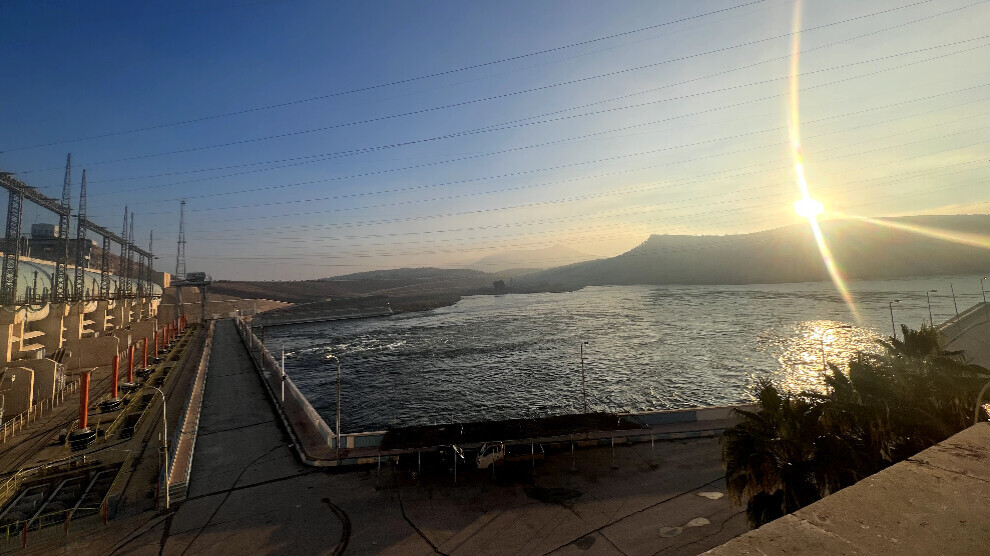The occupying Turkish state and allied mercenaries have been carrying out uninterrupted attacks on Rojava since 28 November 2024. Attacks against vital civilian infrastructure such as Tishrin, which is the source of electricity for many regions, constitute a direct war crime.
This is not the first time civilian infrastructure has been targeted by the Turkish state. For years, power plants, hospitals, schools, factories, oil facilities, water facilities have been bombed in the regions of the Autonomous Administration of North and East Syria. Millions of people have been severely affected by these attacks.
Located in the Manbij region, Tishrin Dam is 115 kilometres from Aleppo province and 80 kilometres from the Turkish border. The construction of the Tishrin Dam started in 1991, and it began to provide electricity in 1999 after eight years.
Before the war and conflicts in Syria, the Tishrin Dam had the capacity to meet the needs of the whole of Syria.
Especially between 2014 and 2016, when ISIS occupied Manbij, the Tishrin Dam suffered a heavy blow. ISIS tried to completely destroy the dam dozens of times during the liberation campaign for Manbij.
However, YPJ, YPG and SDF fighters carried out a very careful operation to prevent damage to the dam. In December 2015, Tishrin Dam was liberated by YPG, YPJ and SDF fighters. The dam, which has been meeting the electricity demand of the people of the region for years, is now under threat from the Turkish state.
Serving as the main source of energy in the region, the dam is currently limited to sharing only the electricity generated from the Euphrates water due to the attacks. In other words, the dam can serve at a minimum level.
Currently, the electricity generated from Euphrates water can be supplied to Sirrin district, Kobanê city, Abu Qalqal district of Manbij and Jirni district of Tabqa.














